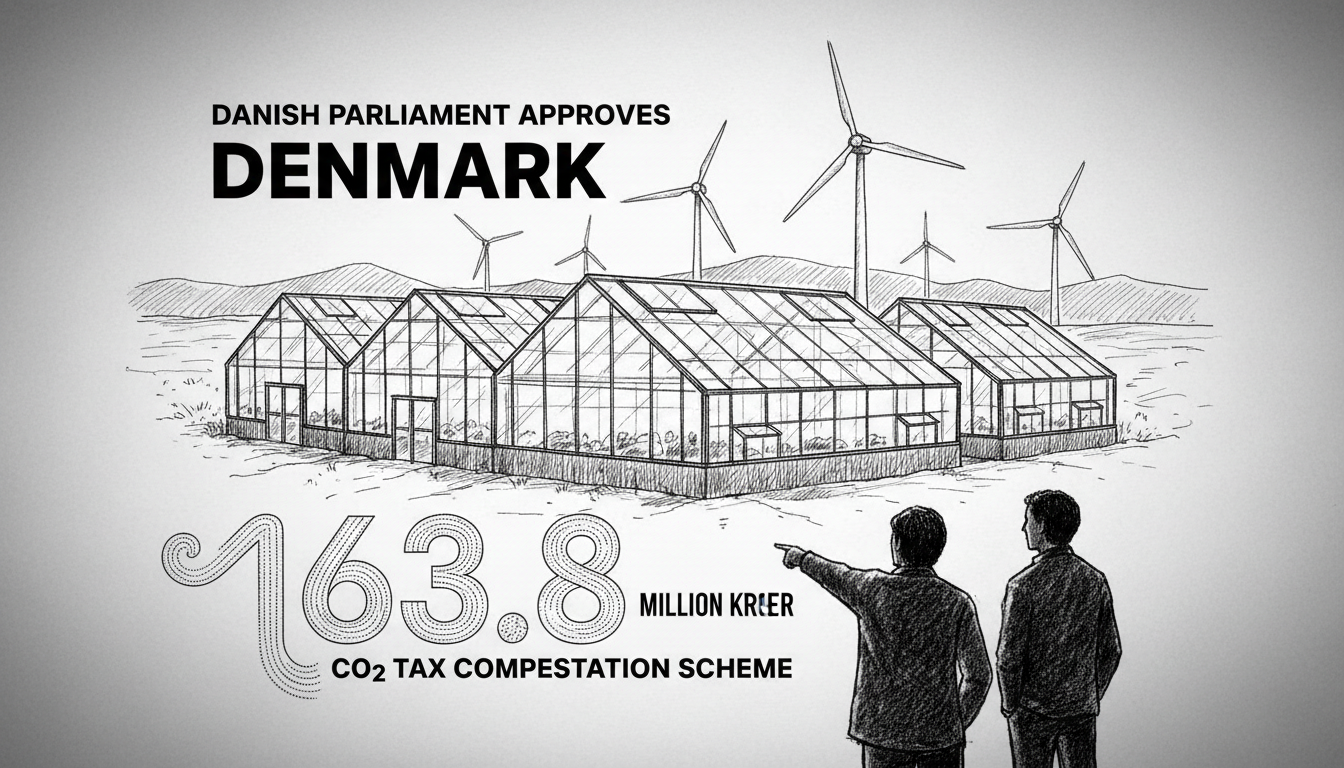Danish greenhouse growers will receive compensation for their CO2 tax payments through a new support program. The government and parliamentary majority agreed to the 163.8 million kroner scheme on Friday.
Food Minister Jacob Jensen said the agreement aims to maintain sustainable Danish fruit and vegetable production. Greenhouse businesses face intense international competition that makes them vulnerable to new taxes.
Without support, the CO2 tax could force closures rather than encouraging green transitions. The tax was introduced as part of a 2022 green tax reform to push companies toward sustainable processes.
Greenhouses often use coal, oil, or natural gas for heating and CO2 enrichment. This makes them particularly exposed to carbon pricing measures.
The compensation will cover up to 80% of CO2 tax payments through 2029. Support comes through a de minimis scheme for smaller amounts and cases.
In return, growers must create climate assessments mapping emissions and reduction potential. They also commit to specific green investments.
The government acknowledges that pure tax pressure might simply reduce production rather than transform practices. This practical approach recognizes economic realities while maintaining environmental goals.
What does this mean for Denmark's green transition? The compromise shows how environmental policy must balance idealism with business survival in competitive global markets.

